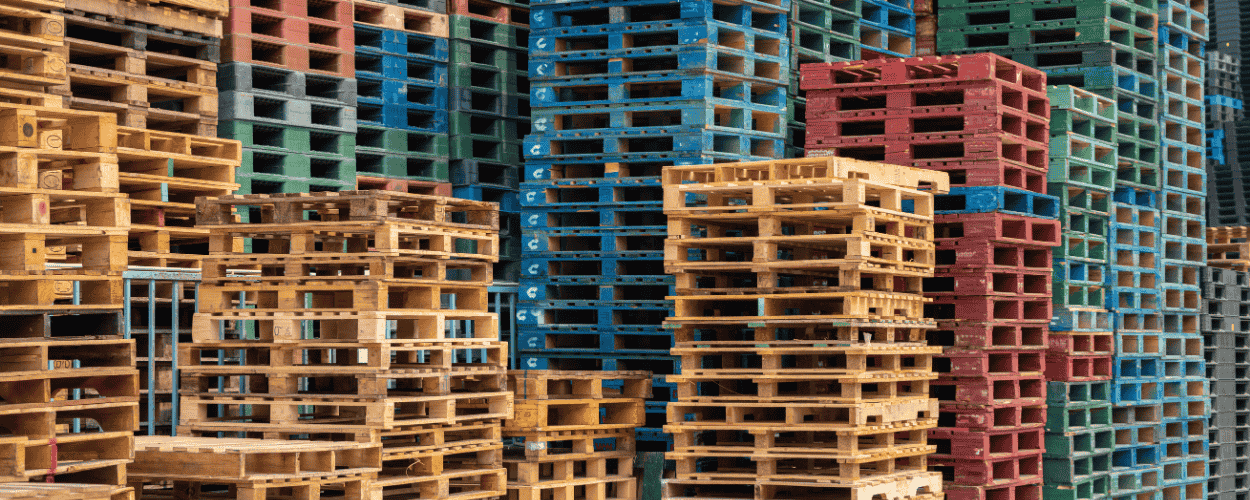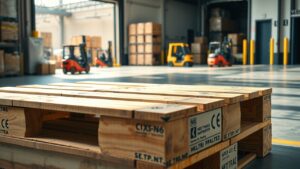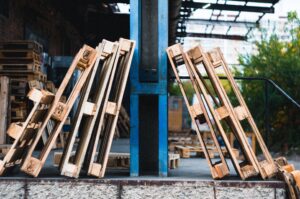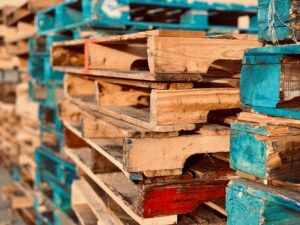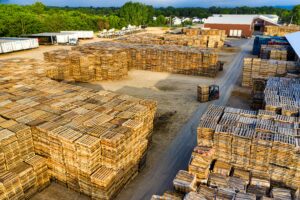Pallets are the backbone of the shipping and storage industry, moving products across cities, countries, and continents every day. Yet not all pallets are equal in value. Whether you are a business owner working with a pallet supplier, a warehouse manager sourcing pallets for sale, or a manufacturer relying on custom pallets, knowing which pallets are worth keeping, repairing, or selling can help you turn unused stock into a profitable asset.
By understanding the materials, sizes, and conditions that make a pallet desirable in the marketplace, you can make more informed buying, selling, and recycling decisions. Let’s explore the pallet types, features, and market factors that determine which ones are worth the most attention.
Popular Pallet Types That Retain Value
Standard-Sized Wooden Pallets
The most commonly traded pallets in North America are standard-sized wooden pallets, often used in industries from retail to manufacturing. Their popularity comes from their ease of handling, compatibility with automated warehouse systems, and wide availability of buyers.
Because they are standardized, these pallets can be resold quickly through pallet recycling programs or directly to companies looking for ready-to-use stock.
Custom Pallets
Custom pallets are designed for products that don’t fit typical size or weight specifications. These can be made from wood, plastic, or even metal, with specialized reinforcements or configurations.
While custom pallets appeal to niche buyers, their value often depends on finding the right market, such as industries with oversized machinery, fragile items, or unusual packaging needs. A pallet supplier that offers both standard and custom options can often help match sellers with ideal buyers.
Heat-Treated Pallets
Heat-treated (HT) pallets are essential for international shipping, as they meet ISPM-15 regulations for preventing pest and disease transfer. They are stamped with an HT mark, making them instantly recognizable to buyers.
Since these pallets are export-ready, they appeal to freight companies, exporters, and large-scale manufacturers. Their added compliance makes them more desirable than untreated wood pallets for certain supply chains.
Plastic Pallets
Plastic pallets have a longer lifespan than wood, resist moisture, and are less prone to damage from insects or mold. They are often used in food production, pharmaceuticals, and other industries that require strict hygiene standards.
Their durability and consistent design make them a preferred choice for high-volume shippers, which helps them maintain resale value when kept in good condition.
Metal Pallets
Metal pallets, most commonly aluminum or steel, are highly durable, capable of supporting heavy loads, and resistant to environmental wear. They are typically used in aerospace, defense, and manufacturing settings where safety and stability are priorities.
While they are not as widely used as wood or plastic pallets, their strength and longevity make them valuable for certain industries.
Key Factors That Influence Pallet Value
Condition and Grading
The condition of a pallet is one of the most important factors in determining its worth. Pallet suppliers typically grade pallets into categories:
- Grade A – Nearly new, with minimal wear and strong structural integrity.
- Grade B – Repaired but functional, showing signs of previous use.
- Grade C or Scrap – Damaged or dismantled, but still usable for parts or raw materials.
A Grade A pallet will generally attract more buyers, while lower-grade pallets may still hold value for recycling or refurbishment.
Size and Standardization
Standard sizes are easier to resell because they fit seamlessly into most supply chains. While custom pallets can be valuable, they often require finding a buyer with the same product specifications.
Pallet suppliers tend to prioritize standard sizes for quick turnover, while still keeping a selection of specialty pallets for niche markets.
Material
The material of the pallet, wood, plastic, or metal, directly impacts its demand. Wood is most common and widely recyclable. Plastic appeals to industries needing clean, moisture-resistant solutions. Metal offers unmatched durability and weight capacity for heavy-duty applications.
Volume and Logistics
Pallets sold in bulk tend to attract larger buyers, including distribution centers and manufacturing plants. Additionally, the location of the pallets plays a role; selling near a transportation hub or industrial area can reduce shipping costs and make pallets more appealing to local buyers.
Comparing Pallet Value Factors
Below is a simplified comparison of how different pallet types perform across key value factors:
| Pallet Type | Durability | Demand | Resale Potential | Special Compliance Needs |
| Standard Wood | Moderate | High | High | None |
| Custom Pallets | Varies | Medium | Medium | Product-specific |
| Heat-Treated Wood | Moderate | High | High | ISPM-15 for export |
| Plastic | High | Medium | Medium-High | Hygiene regulations |
| Metal | Very High | Low | Medium | Industry-specific |
How to Maximize the Value of Your Pallets
Focus on High-Demand Types
If your goal is to resell pallets quickly, focus on those with consistent demand such as standard-sized wooden pallets or heat-treated options. These are easier to move through pallet recycling networks and supply chains.
Maintain Pallet Condition
A pallet in good condition will always sell faster and for a higher price. Avoid stacking pallets in damp environments, and repair minor damage before resale.
Partner with a Reputable Pallet Supplier
Working with an established pallet supplier can save time and connect you to the right buyers. Suppliers can also help with grading, repair, and transportation, making it easier to maximize returns.
Understand Your Market
Different regions and industries have different pallet needs. Food producers may prefer plastic pallets for hygiene reasons, while construction companies may opt for heavy-duty wood or metal. Tailoring your pallet offering to the local market will increase sales potential.
Reliable Supply Begins with a Conversation
At AR Pallets, we understand that the right pallet makes all the difference in your shipping and storage efficiency. Whether you need custom pallets, are searching for a trusted pallet supplier, or want to find durable pallets for sale, our team delivers solutions tailored to your needs.
We supply high-quality pallets for a range of industries and offer both standard and specialized designs to fit your logistics requirements. You can find us at 12213 Industrial Rd, Surrey, BC V3V 3S1 or give us a call at (604) 396-7884 to discuss your pallet needs today.

